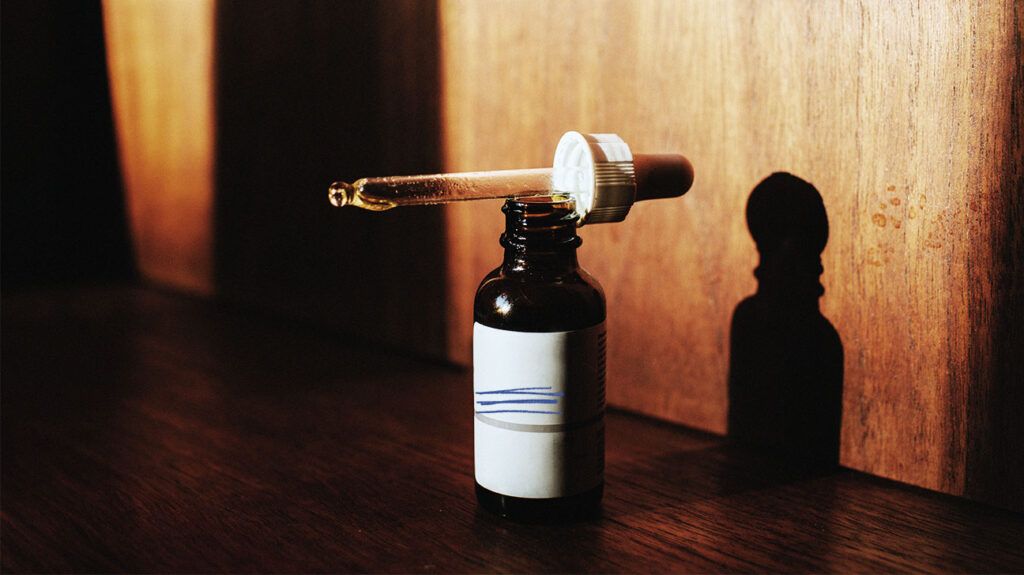There is insufficient evidence to suggest homemade eye drops are safe or effective for treating dry eye syndrome. Homemade eye drops may be unsterile or contain unsuitable ingredients, which could harm eye health.
Instead, a person needs to choose eye drops available to purchase over the counter. They can also try alternative, safe home remedies such as warm eye compresses.
This article examines the science behind homemade eye drops, safe home remedies to use instead, and over-the-counter (OTC) eye drops.

It is
A 2021 study looked at online searches of complementary and alternative therapies for dry eye and found that common therapies included:
- Coconut oil: A
2015 study examined using coconut oil to treat dry eyes in rabbits. The study suggests that the oil’s antimicrobial and anti-inflammatory properties may benefit dry eyes and may work as a protective layer over the eye surface to prevent tear evaporation. However, no human studies suggest coconut oil is safe or effective as a dry eye treatment in humans. - Chamomile eyewash: Chamomile has antimicrobial, anti-inflammatory, and pain-relieving properties, which may make it beneficial as an ingredient in OTC eye drops for treating mild bacterial infections, such as conjunctivitis. However, using chamomile tea as a homemade eye wash or eye drop solution may be unsterile and, therefore, unsafe to apply to the eyes.
- Castor oil: According to a 2021 review, topical application of castor oil to the surface of the eye may benefit dry eyes. These benefits include reducing tear evaporation and increasing the thickness of the lipid layer of tear film. However, there is still a risk of contamination and a lack of evidence for the safe and effective use of homemade solutions.
A
The article notes that medicinal eye products, such as eye drops, require sterile ingredients and preparation under strict conditions to eliminate contamination with harmful microorganisms.
The products also need to have a specific pH to match that of tears as closely as possible. Specific guidelines also apply to the concentration and size of particles within the solution.
The study suggests that recipes for homemade eye products may be imprecise, use substances that are unsuitable for eye application, and lack safe preservation. Using homemade eye products is likely unsafe and may result in serious side effects.
If a person does not have any OTC eye drops, there are safe and effective home remedies they can use to help ease dry eye symptoms. These can include:
- Warm compresses: Placing a wet compress on the eyes helps the glands in the eyelids release oil, which improves tear quality. People can wet a clean washcloth with warm water, wring it out, and place it over closed eyes for 1 minute or more. Keep wetting the cloth to keep it warm. Eye masks may also help.
- Eyelid washes: Using a clean washcloth or cotton swab, a person can use warm water and soap or baby shampoo to gently wash the base of the eyelids where the lashes are. They can then gently scrub the base of the lashes for around 15 seconds before thoroughly rinsing afterward.
- Blinking more often: Blinking more regularly can help restore moisture to dry eyes. A person can take breaks from looking at a screen or reading every 10 minutes to rest the eyes.
Daily cleansing of the eyelids and eyelashes
Other home remedies
Other home remedies for relieving dry eye symptoms
- increasing humidity levels indoors, such as using a humidifier
- avoiding factors that could dry out the eyes further, such as air conditioning, long airline flights, opening car windows, or fans
- lowering the level of a computer screen so people are looking downward, which reduces tear evaporation
- wearing any prescription eyewear as necessary to prevent eyestrain
- maintaining a lifestyle that incorporates enough sleep, exercise, mental health support, and adequate nutrition
- staying well-hydrated
- considering omega-3 supplements or including suitable sources of omega-3 in the diet
- considering vitamin D supplementation, which
may help dry eye symptoms
Learn more about how to treat dry eyes naturally.
OTC eye drops for dry eyes may help relieve symptoms. According to the American Academy of Ophthalmology (AAO), preservative-free eye drops for lubricating dry eyes are generally safe to use as much as people require.
However, eye drops with preservatives may irritate the eyes over time. Experts recommend avoiding these if people use eye drops more than four times daily.
If people have dry, irritated eyes and use OTC eye drops more than two to three times per day, the AAO recommends consulting an eye doctor for a comprehensive eye examination.
A doctor can identify the specific problem and suggest an appropriate treatment plan.
OTC eye drops and safety
The Food and Drug Administration (FDA) is currently warning people to avoid buying some OTC eye drops from several major brands. This is due to a risk of eye infections that may result in partial vision loss or blindness.
Individuals can check the
Any person with symptoms or signs of an eye infection after using these eye drops needs to speak with a healthcare professional immediately.
It is not safe to use homemade eye drops for dry eye, as they may not be sterile and may contain unsuitable ingredients. Using homemade eye drops may cause unwanted or severe side effects.
If people want to treat dry eye with home remedies, safe options include warm compresses, eyelid washes, and over-the-counter eye drops.
If symptoms do not improve with home remedies, people will need to consult an eye doctor.
